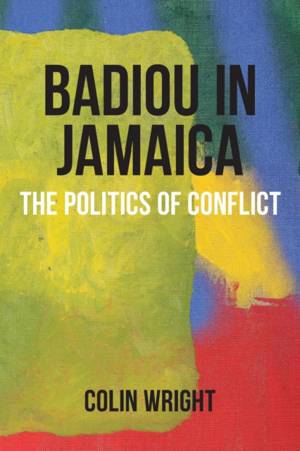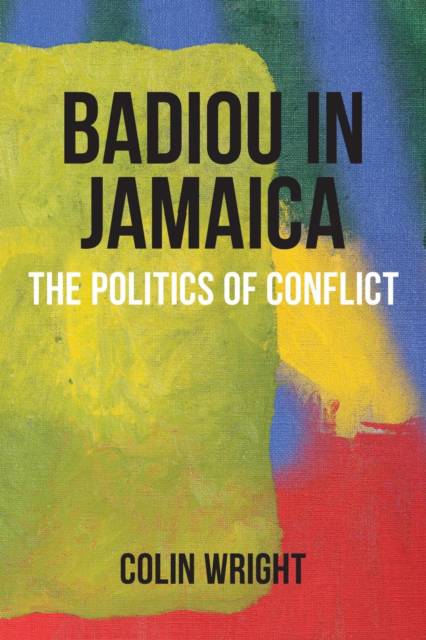
- Afhalen na 1 uur in een winkel met voorraad
- Gratis thuislevering in België vanaf € 30
- Ruim aanbod met 7 miljoen producten
- Afhalen na 1 uur in een winkel met voorraad
- Gratis thuislevering in België vanaf € 30
- Ruim aanbod met 7 miljoen producten
Zoeken
€ 38,95
+ 77 punten
Omschrijving
This book foregrounds the centrality of political conflicts in the radical philosophy of Alain Badiou. It is divided into two halves. The first undertakes a reading of Badiou's wider oeuvre (beyond Being and Event) and demonstrates that his political theory derives from analyses of key revolutionary sequences such as the Paris Commune, October '17, May '68 and the Chinese Cultural Revolution. From his evolving meditations on these sequences, and from his theoretical borrowings from Marxism, psychoanalysis and set-theory, Badiou has established a complex schema of the possible outcomes of conflict which constitutes a subtle and flexible theory of change. In the second half, the book applies this schema to a concrete 'situation': colonial and post-colonial Jamaica. Against the backdrop of the history of conflict in Jamaica, the Morant Bay Revolt of 1865 is interpreted as an 'event' in Badiou's very precise sense. The Rastafari movement is then posited as a 'subject body' faithful to this event, while roots reggae is explored as the 'subject language' of this Rastafarian subject body. Through this example, it is suggested that the starkness of the account of the event in Being and Event, in its incompatibility with history or culture, must be qualified if Badiou's contribution to a renewed philosophy of conflict is to be realized. To this end, the book builds on Badiou's own Logics of Worlds in order to speculatively propose two new concepts: 'evental historiography' and 'evental culture'. It is argued that conceptual elaborations like these might enable a productive rapprochement between Badiou and Cultural Studies and Postcolonial theory - disciplines of which Badiou himself has been extremely critical, but which are certain to shape his reception in the English-speaking world. Conversely, both Cultural Studies and Postcolonial theory, precisely in their increasingly enfeebled conceptions of social, cultural and political conflict, stand to gain a great deal from dialogue with the persistently Maoist dimensions of Badiou's work.
Specificaties
Betrokkenen
- Auteur(s):
- Uitgeverij:
Inhoud
- Aantal bladzijden:
- 358
- Taal:
- Engels
- Reeks:
Eigenschappen
- Productcode (EAN):
- 9780987268266
- Verschijningsdatum:
- 1/06/2013
- Uitvoering:
- Paperback
- Formaat:
- Trade paperback (VS)
- Afmetingen:
- 156 mm x 234 mm
- Gewicht:
- 548 g

Alleen bij Standaard Boekhandel
+ 77 punten op je klantenkaart van Standaard Boekhandel
Beoordelingen
We publiceren alleen reviews die voldoen aan de voorwaarden voor reviews. Bekijk onze voorwaarden voor reviews.








